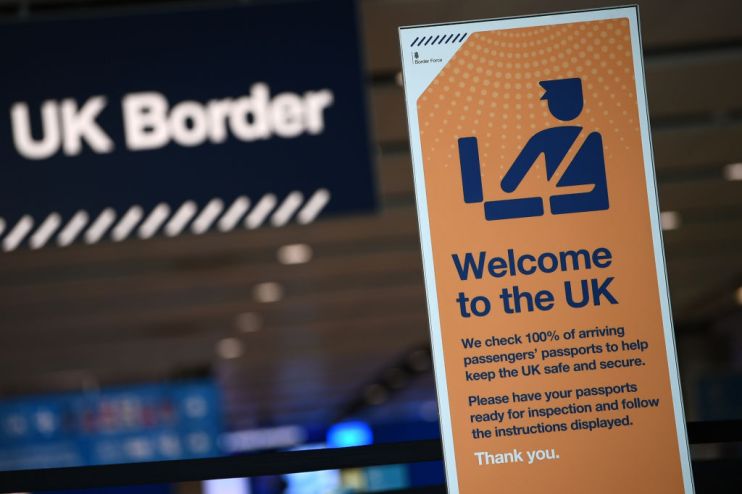Business blocked from immigration discussions after MAC report, Downing Street suggests

The government has signalled there will be no more formal consultation with business groups on immigration policy as it begins drawing up a new system for the post-Brexit regime.
Instead, ministers will rely on a long-awaited report from the independent Migration Advisory Committee (MAC) which will be unveiled in Westminster this morning. It is understood that the immigration bill will be brought forward in March.
Although Downing Street has remained tight-lipped about what it might look like, with the MAC report under lock and key, it is thought that Boris Johnson is keen to scrap the proposal of a salary threshold of £30,000 that was originally touted under Theresa May.
The proposed net migration target, which May had insisted remain in the face of widespread criticism, is also expected to be shelved.
However there is no suggestion that there may be a u-turn over seasonal or low-skilled workers, which the service industry relies on.
But asked by City A.M. if business would be consulted ahead of publication of the immigration bill, the spokesman stressed that government would be heavily leaning on the recommendations of the MAC’s “expert panel”.
“We are always in discussion with business,” he said. “But we commissioned the MAC work, that has taken a bit of time, and once it has been reported we will look at their proposals and bring forward our immigration bill.”
The Australian-based points system that the government will adopt will ensure “the brightest and best come to work in the UK”, while bringing overall immigration numbers down, he added.
“There was a very clear message from both the 2016 referendum and the General Election of 2019 that people want low skilled immigration bringing down, and the government is committed to achieving that.”
Last week more than 30 UK trade bodies, including the Confederation of British Industry and British Chamber of Commerce, wrote an open letter to Number 10 offering help in designing the new immigration system.
“Insight from enterprise can help build a points-based model that provides greater control, whilst providing access to the labour and skills needed to support the economy,” the letter said. “This can go hand in hand with a continued determination to invest in training home grown talent.”
However, City AM understands the only response so far has been a “non-committal” thanks, while pro-Leave government sources have been briefing against perceived attempts from the community to keep freedom of movement after Brexit.
“The letter could not have been worded in a kinder way to say we know freedom of movement is moving, that immigration is complex and here is a suggestion about how you put in a system that does both things: meets public concerns about migrants and helps keep our economy open,” said one industry insider. “The idea that we are campaigning to keep freedom of movement is absolute bollocks.”
It comes as new polling suggests the majority of people back a system which priorities people with high skills – alongside skills needed by the NHS.
The poll, carried out by ICM for the think tank British Future, found that 63 per cent wanted to support highly skilled workers, while 61 per cent thought medical staff should get a points-boost.
Four-in-ten people think that good spoken and written English, a clean criminal record and an existing job offer should all attract high points too. Only 20 per cent of people said the salary threshold was a priority.
In an apparent policy land-grab, Nicola Sturgeon yesterday unveiled plans for a “Scottish visa”, which would sit on top of the existing UK immigration routes, enabling migrants to live in Scotland and hold a Scottish tax code.
The First Minister said: “The latest proposals from the UK Government to control immigration and end freedom of movement would be disastrous for our economy and society and would risk acute labour shortages.
“Migration is an issue which is crucial for our future, but the Scottish Government doesn’t currently have the powers needed to deliver tailored immigration policies for Scotland.
“Devolving immigration powers by introducing a Scottish Visa would allow Scotland to attract and retain people with the skills and attributes we need for our communities and economy to flourish.”
But Downing Street stressed there was no move to devolve responsibility for this matter. “Immigration is a policy for the UK government,” the spokesman said. “We will put in place a system that works for the UK as a whole”.